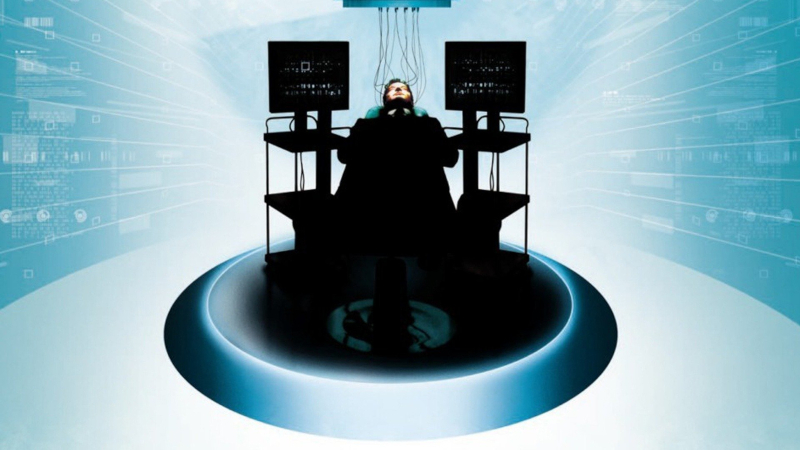One truth that will never get told by me to anyone who’d ask “what do you do for fun” is the following: I sometimes love to delve into meditative state to question reality. To question the meaning and nature of everything around me, starting from something small like the pen I use to write in my diary, to huge things like high-rise in a city centre. This can be an incredible source of inspiration with the aforementioned pen making all its way to me as per some grand design by architects, who’d have higher level access codes to creating the reality, while the high-rise becomes a building to help and oversee the functioning of the grand design. When you think in terms of cinema, there could be a number of movies that come to mind right now that all deal with faking and/or manipulating the reality; Dark City, They Live, The Matrix, Kafka probably being among the more well known ones. Inevitably we come to conclusion that it is all about twisting and exploring our own mind rather than the reality outside of us.
Thinking about such meditative exercises does spur certain concern about how that could affect my mental health because what if one day I somehow end up trapping myself in an Inception-like pseudo reality, not being able to come back from it? What could be worse than that?
Enter the 2002 sci-fi thriller Cypher. Just like the former Soviet Union, Cypher is full of people, who one has to be wary of since it is never known who is an agent for whom. It is a corporate reality of industrial spying, written by Brian King, where no one can be trusted and anyone can potentially turn out to be the cause for one’s demise. In this fast paced nightmare, full of paranoia, smart dress code and technological capabilities, reminiscent of Clockwork Orange and spy novels, Morgan Sullivan (Jeremy Northam), formerly an accountant well familiar with big business, soon finds himself avoiding death at every step.
Cypher is a movie with a modest budget of $7 million. By comparison, the original Total Recall, for instance, was made with approximately $65 million while The Matrix had the budget of $63 million. The budget constraints can be noticed all throughout the film with indoor shots, a lot of single shots and close-ups. Northam’s Sullivan gets a lot of screen time, however Cypher isn’t an existentialist movie – it is not about meaning of anything in life, rather an hour and a half long algorithm of survival and accomplishing a mission. Filmed in 35 days, it is sometimes even remindful of action videogames. The pace and dynamics are perhaps Cypher’s best qualities that not only align well with Lucy Liu’s (Charlie’s Angels, Kill Bill) skills, but also look like director Vincenzo Natali’s (Splice, Cube) exercise in taking spy action thrillers and their tropes to the extremes all the while working around the challenges, created by small funds. As such it is, in my humble opinion, altogether an impressive stunt.
Cypher is a frugal low-budget flick yet I couldn’t help but notice how certain things and editing techniques from it would seem to appear in bigger budget movies a bit later on, such as The Island and The Butterfly Effect respectively. It might all be a coincidence, but if there’s something one cannot argue with regarding Vincenzo Natali’s craft, it’s the skill of compressing seemingly dull things into an astonishing sequence that captures the attention and, before you know it, it has already run its course – something of a quantum quality, which, in my opinion, Cypher is a great example of. It has taken Philip K. Dick’s favourite themes of exploration and compressed them quantum way to match the budget. The only problem with Cypher is that, unlike Cube, I don’t imagine it leaving impression on Franz Kafka if he was to look into the crystal ball while writing The Metamorphosis; Morgan Sullivan’s challenges are a bit too uncomplicated.
Read my review of The Peripheral tv series, partly directed by Vincenzo Natali here.
Read my review of 2022 Netflix film The Weekend Away with the tagline "Trust no one, suspect everyone" here.





